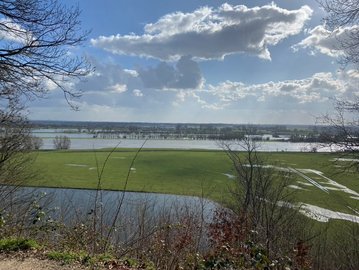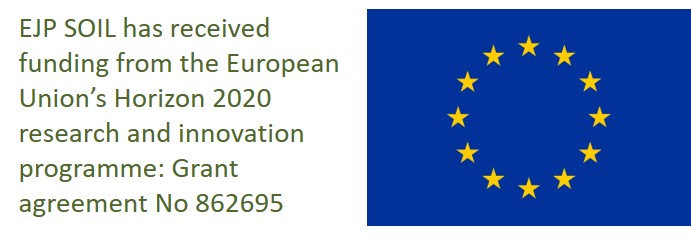INSPIRE course - April 2022

Guiding national soil information providers towards INSPIRE compliance. What is that? How do you make your data INSPIRE compliant?
EJP SOIL facilitates EU member states to provide Soil data following the INSPIRE Directive with training on: Soil Data good practices
Soil experts, data scientists and IT operators from across Europe joined for training on INSPIRE Good Practices around Soil Data at Wageningen University and Research in April 2022.
Open Access Materials
Click the links for access the recordings of the various sessions.
Day 1
09.00 Introduction and welcome (Fenny van Egmond, WENR)
10.00 Why is the INSPIRE directive relevant for EJP, why this training. (Maria Fantappiè, CREA)
11:00 The reasoning behind INSPIRE why do we need a directive? (Joeri Robbrecht, European Commission)
14.00 Why do we need to understand INSPIRE and share data? (Jandrik Bulens, WENR)
14:15 Experiences of Implementing SOIL in INSPIRE. (Maria Fantappiè (CREA), Florian Hoedt (Thünen) and Dries Luts (AGIV))
15:30 Conceptual Framework (Luis de Sousa, ISRIC)
17.15 Icebreaker: World Soil Museum tour (Stephan Mantel, ISRIC)
Day 2
09:00 Data discovery (Paul van Genuchten, ISRIC)
10.00 Interoperability; O&M, Sensorthings API, Web Coverage Services (Kathi Schleidt, Datacove)
11.00 Extending INSPIRE for the Air Quality directive (Kathi Schleidt, Datacove)
11:30 INSPIRE Soil: an overview and relations with other standards, the conceptual model of the soil theme as a common base (Kathi Schleidt, Datacove)
14:00 Harmonize, map, transform: what does it mean? (Paul van Genuchten, ISRIC)
15:30 Code lists in INSPIRE (Paul van Genuchten, ISRIC)
Day 3
09:00 Implementation, operation, reporting. How do you keep track on progress? (Paul van Genuchten, ISRIC)
10:00 Technical aspects of view (WMS)-, download (WFS, Atom) services and data harmonization (Paul van Genuchten, ISRIC)
11:00 Adapting to evolved developments specifically WCS and SensorThings (Kathi Schleidt, Datacove)
14:00 Zooming in on INSPIRE and GloSIS mapping. What about tools and software to be used (Luis de Sousa, ISRIC)
15:00 Emerging data exchange technologies: OGC API; RDF/SPARQL, Gaia-x. Why, what and how? (Paul van Genuchten, ISRIC)
In brief on the participants:
- A total of 34 participants registered for the training
- 15 students participated in all course elements in Wageningen, 8 joined online for most of the topics.
- 15 of the participants were affiliated with 8 EJP SOIL partner institutions
The training was organized by EJP SOIL to raise awareness and to facilitate member states in publishing harmonized Soil Data in the scope of current directives. EJP Soil has a work package dedicated to facilitating member states to publish harmonized soil data. In an inventory from 2021 it appeared that member states in general have a low awareness of the Soil Data Harmonization and Publication requirements of the various soil related directives, such as INSPIRE. Also a lack of experience with technologies to facilitate these processes was identified. For this reason, a training has been prepared dedicated specifically to harmonization and publication of Soil Data, based on the experiences from the wider INSPIRE community.
Participants from Poland, Lithuania, Italy, Germany, Portugal, Turkey, Belgium, Hungary and the Netherlands joined in the 3 days full time training program. Lectures and practical workshops were given by Jandirk Bulens, Kathi Schleidt, Luis de Sousa and Paul van Genuchten. The kick-off of the training was done by Fenny van Egmond and Maria Fantappiè on behalf of EJP and Joeri Robbrecht on behalf of the European Commission. The first day was concluded by a tour through ISRIC's World Soil Museum, guided by Stephan Mantel.
During the training, the participants were introduced to:
- The relevant legislation and its interpretations.
- An introduction to upcoming relevant topics (Green Deal, Data spaces, INSPIRE evaluation).
- The reason behind INSPIRE and the global concepts of the INSPIRE data models.
- Soil ontologies in general, the GloSIS ontology, metadata, data harmonisation and interoperability.
- Discovery, view and download services.
- Current and future implementation options and details.
- Supportive tooling provided by JRC (documentation, INSPIRE geoportal, validators, progress reporting).
Student testimonials:
“The INSPIRE directive is relevant to EJP SOIL, because in the European Union, we need to unify the data storing and sharing methodology (including EJP-SOIL results) to enable each country to access and use the data and to understand what is hidden behind the datasets.”
“As a scientist in the Institute responsible for soil data collection, processing, and sharing, after the course I was able to plan our future work and methodology of data sharing. We have a plan for better soil data management, hence a theoretical and practical aspect of soil data sharing according to INSPIRE was indeed an important lesson.”
“The training met and even exceeded my expectations. The provided material was quite clear, comprehensive and relevant not only for better understanding and implementation of the INSPIRE SOIL theme but also useful for better understanding the INSPIRE directive (INSPIRE directive development and perspectives), and its data structures and data management in general. It was useful to hear other countries' experience working with INSPIRE.”
“The provided material often confirmed my impression that INSPIRE and its implementation is very complex and requires expert knowledge. Moreover, it showed that there is still a lot of work to do, e.g. some legal questions (data privacy, copyright) are still not fully answered and are in general often proceed in a grey area, and depend on their interpretation.”
EJP SOIL education, training, and capacity building
EJP SOIL work package 6 is dedicated to improving soil data harmonization and sharing at the institutional level and cooperates with WP5 to provide capacity building for this. This was a first training on this topic. T5.5 together with WP6 will organise two more trainings during the project. One will be about proximal and remote sensing, The other is of yet undecided. One option is a more hands-on training as described in the participant feedback.
For more information:
Course organiser: Saskia Keesstra, Wageningen Environmental Research, saskia.keesstra@wur.nl
